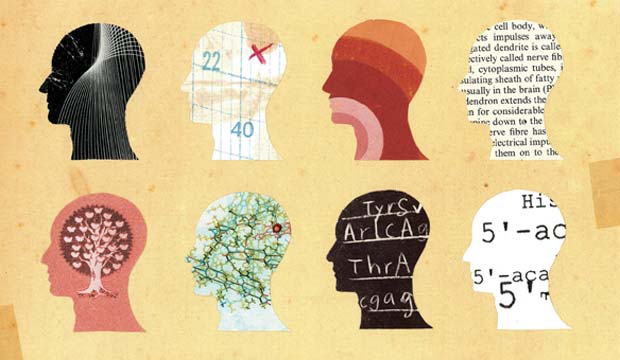 Gaining a scholarship-funded PhD place to study English Literature has been simultaneously one of the best and most challenging events of my life so far. I excelled in the application process, grabbing it with both hands, loving the sense of competition and intensity. At the same time, I felt ‘out on a limb’, concerned about what would happen when the competition faded, or if I was not successful in gaining that single, highly-contested place. Six months into a postgraduate qualification is probably quite early to be musing on some of the effects of this type of study has upon my mental health, but I do feel as if I have gleaned some gems which will hopefully help me to move forward in a healthy way.
Gaining a scholarship-funded PhD place to study English Literature has been simultaneously one of the best and most challenging events of my life so far. I excelled in the application process, grabbing it with both hands, loving the sense of competition and intensity. At the same time, I felt ‘out on a limb’, concerned about what would happen when the competition faded, or if I was not successful in gaining that single, highly-contested place. Six months into a postgraduate qualification is probably quite early to be musing on some of the effects of this type of study has upon my mental health, but I do feel as if I have gleaned some gems which will hopefully help me to move forward in a healthy way.
I don’t need to go into the details of my background here, but I escaped from a severely abusive situation when I was eighteen years old. It was the kind of setting where you’re taught from a young age that black is white, that good is bad, and that you were born to serve the purposes of others, purposes that were damaging me  physically, sexually and emotionally. During all the intensity of my younger life, I survived by throwing myself into my studies. My school knew that ‘something’ was going on, but they or I could never get to the bottom of it. They were brilliant and let me progress, giving me extra work, recommending books, and ultimately helping me to apply and attend a summer school scholarship program for ‘gifted’ (I hate that word) state school students who had the potential to study at Oxbridge. I got a place and had an amazing week at St Hughes College, Oxford. I’d finally found a place where I felt like I fitted, and where I could build good relationships. I knew that I had to apply for undergraduate study there. Needless to say, when I got home and announced my intentions, it created a furore with those closest to me.
physically, sexually and emotionally. During all the intensity of my younger life, I survived by throwing myself into my studies. My school knew that ‘something’ was going on, but they or I could never get to the bottom of it. They were brilliant and let me progress, giving me extra work, recommending books, and ultimately helping me to apply and attend a summer school scholarship program for ‘gifted’ (I hate that word) state school students who had the potential to study at Oxbridge. I got a place and had an amazing week at St Hughes College, Oxford. I’d finally found a place where I felt like I fitted, and where I could build good relationships. I knew that I had to apply for undergraduate study there. Needless to say, when I got home and announced my intentions, it created a furore with those closest to me.
I don’t remember very much of that last year at home, but I remember the look on my tutor’s face when I told her I’d changed my mind, and that I didn’t want to go to university at all. I just didn’t have the words for what was really happening: I was being beaten and starved, not allowed to sleep, and worse. Those months passed in the blur of trauma. I scraped through my A Levels with adequate but much lower grades than anticipated, and on the day that all my friends were heading off to universities around the country, I was numbly working in Boots.
 At that stage, I knew that if I stayed put, I probably wouldn’t make it at all. Eventually, somehow I ran away, changing my name and moving 200 miles north to Manchester and then to London. For the next six years, I worked hard at dealing with this backlog of trauma. I saw a therapist who helped me to face up to and learn coping strategies, and through it all, a gritty determination rose up in me and nudged me to consider reapplying to university.
At that stage, I knew that if I stayed put, I probably wouldn’t make it at all. Eventually, somehow I ran away, changing my name and moving 200 miles north to Manchester and then to London. For the next six years, I worked hard at dealing with this backlog of trauma. I saw a therapist who helped me to face up to and learn coping strategies, and through it all, a gritty determination rose up in me and nudged me to consider reapplying to university.
 Getting a place and moving to Canterbury was exciting, but when I sat in those first undergraduate lectures, I had no idea whether, at 26, I possessed any of the aptitude for study I had shown previously. Thankfully, it seemed to work out ok, and I progressed successfully through my BA and MA at the same university. When they suggested I might want to apply for a PhD scholarship I felt elated, terrified and like history was repeating itself. Fear was the most overwhelming emotion that typified much of the first few months of the process. I was terrified that, having pushed into this new stage, everything would come crashing down around me. It was important to respond to these fears with kindness. After all, they were not exactly unfounded.
Getting a place and moving to Canterbury was exciting, but when I sat in those first undergraduate lectures, I had no idea whether, at 26, I possessed any of the aptitude for study I had shown previously. Thankfully, it seemed to work out ok, and I progressed successfully through my BA and MA at the same university. When they suggested I might want to apply for a PhD scholarship I felt elated, terrified and like history was repeating itself. Fear was the most overwhelming emotion that typified much of the first few months of the process. I was terrified that, having pushed into this new stage, everything would come crashing down around me. It was important to respond to these fears with kindness. After all, they were not exactly unfounded.
I found that kindness gave me the ability to then respond more rationally to my frightened self: it was true that there was a time that taking a risk ended less than well, but it is not true that this is destined to happen every time. I found it vital to rely on the strong network of friendships I had built up by then, with people reminding me that my life is strong, stable and good in the here and now.
 Loneliness was another emotion that has been challenging these past few months. As you gradually whittle down in group size from a bustling undergraduate class to a smaller but keen MA cohort to the moment that there is only you, it can be very disconcerting, especially when past trauma teaches you that to be on your own is not only uncomfortable but dangerous. Here, it has been vital to actively seek out others with similar research interests to myself, to grab a coffee and discuss the woes of the first year of a PhD, and to share both struggles and triumphs. Imposterism is, seemingly, not just a problem for new researchers but also for academics who have been in tenured position for years. It probably sounds weird, but it was intensely releasing to realise that I wasn’t the only one feeling like a fake and a fraud. It helped me come to the conclusion that it’s actually really normal to feel this way sometimes, even if you haven’t come from a background of trauma.
Loneliness was another emotion that has been challenging these past few months. As you gradually whittle down in group size from a bustling undergraduate class to a smaller but keen MA cohort to the moment that there is only you, it can be very disconcerting, especially when past trauma teaches you that to be on your own is not only uncomfortable but dangerous. Here, it has been vital to actively seek out others with similar research interests to myself, to grab a coffee and discuss the woes of the first year of a PhD, and to share both struggles and triumphs. Imposterism is, seemingly, not just a problem for new researchers but also for academics who have been in tenured position for years. It probably sounds weird, but it was intensely releasing to realise that I wasn’t the only one feeling like a fake and a fraud. It helped me come to the conclusion that it’s actually really normal to feel this way sometimes, even if you haven’t come from a background of trauma.
In these first months of my PhD, I’ve realised how important space, rhythms and self-care are. It’s not rocket science, but I noticed pretty quickly that writing an annotated bibliography after a night of awful dreams is simply not an option. These days I try to keep everything provisional in my diary: If I’m having a bad day, I take things slowly, maybe stop for a croissant on the way to campus, or catch up with a friend before I try to write. Some days I stay in bed, and that is ok too.
 As others have mentioned, the supervisor relationship is a vital one, I think, in navigating the tricky waters of the early stages of a PhD. I’m really lucky to have a supervisor who knows about my background but does not bring it up all the time. I’d always advise anyone to share their struggles if possible, with at least one other person connected with their programme. It just helps to know that there is someone out there who knows. I don’t know how things will progress with my research, but I feel like – in these early stages – I have put some scaffolding in place which will help me to progress at a stable pace, and to actually be able to enjoy the process. On a bad day it might feel overwhelming, but a lot of the time I just feel incredibly grateful for a system that has enabled me to explore, to engage with and to rediscover my love of learning, and also to be able to encourage others to pursue those ambitions that once felt stolen from them.
As others have mentioned, the supervisor relationship is a vital one, I think, in navigating the tricky waters of the early stages of a PhD. I’m really lucky to have a supervisor who knows about my background but does not bring it up all the time. I’d always advise anyone to share their struggles if possible, with at least one other person connected with their programme. It just helps to know that there is someone out there who knows. I don’t know how things will progress with my research, but I feel like – in these early stages – I have put some scaffolding in place which will help me to progress at a stable pace, and to actually be able to enjoy the process. On a bad day it might feel overwhelming, but a lot of the time I just feel incredibly grateful for a system that has enabled me to explore, to engage with and to rediscover my love of learning, and also to be able to encourage others to pursue those ambitions that once felt stolen from them.
This i really interesting! I came across it while looking up PhD research in English LIterature on Trauma and the Crying Wound as I want to research this, having just done a thesis on Vera Brittain and others on the theme of surviving trauma of war and loss
Any tips would be most helpful please.